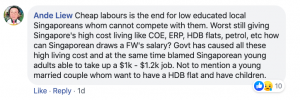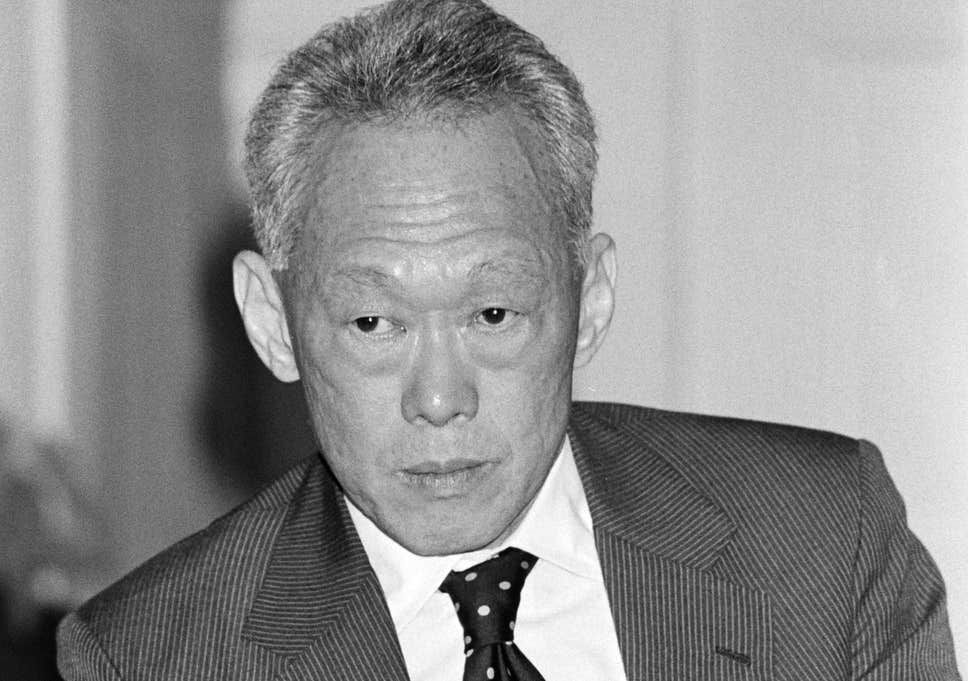Singapore—Amid the outbreak of cases of coronavirus among the country’s migrant workers, the vision of Singapore’s founding Prime Minister to have a “wholly Singaporean workforce” has emerged again, with one netizen wondering what has happened since the first PM Lee mentioned this in a speech in 1982.
On Facebook on Sunday (May 10) Mr Foong Swee Fong posted photos of clippings from Lee Kuan Yew’s 1982 New Year Message in The Straits Times.
https://www.facebook.com/foong.s.fong/posts/10221064679022965
The article begins with “A wholly Singaporean workforce without any work permit holder at all by 1991—this is the 10-year target Mr Lee Kuan Yew has set for the nation in his New Year message released yesterday.”
Moreover, the founding Prime Minister added that workers who “will raise our level of productivity” would be desirable for retention even after 1991, saying that these workers would be given permanent residence as a step toward citizenship. “Then we shall have a more homogenous workforce, working together as a team, because they all feel committed to Singapore.
Mr Lee went on to mention that countries such as France, UK and what was then West Germany faced problems due to their migrant workforce, while in Japan, the workforce was local and they did all “their own heavy and dirty jobs.” Therefore there were “no social problems or riots,” but they had high productivity.
Mr Foong said that in the 1970s, Hon Sui Sen, Singapore’s Finance Minister, also warned about the dangers of having a large migrant workforce, calling it “politically undesirable.”
However, Mr Foong wrote that a few years after the Prime Minister’s 1982 New Year message, Singapore went into its first major recession in 1985 with negative economic growth, and the resulting economic review, headed by Lee Hsien Loong, who was then Minister of State for Trade and Industry, included measures such as “slashing labour cost, cutting corporate tax and personal income tax of high earners, employers contribution of CPF as well as deregulating and privatizing (no doubt influenced by the neoliberal movement in the US and UK) many government entities except those related to defence and utilities.”
And while economic growth started again the following year, more foreign workers were allowed to come in “and worse still, with a vengeance, so that the proportion of foreign workers before the early Eighties, which was below 10% shot to almost a third within the next decade, and still growing.”
Mr Foong ended his post by asking, “Why didn’t LKY put a stop to it, feeling so strongly about the ill-effects of depending on foreigners?”
Other netizens seemed happy to oblige him by posting possible answers to his question.
Some said that the older Mr Lee could have simply changed his mind about the issue.




For others, the answer lies in economics, in that it is more cost-effective for Singapore to have foreign workers.




Another person’s comment went one step further, saying that the habit of having foreign workers is not an easy one to break.


Others chose to comment on how cheap labour affects Singaporeans on the low end of the wage scale.


-/TISG
Netizens question empty seats in Parliament, saying this wasn’t the case during Lee Kuan Yew’s time

